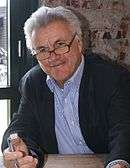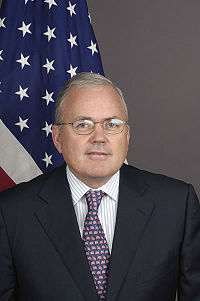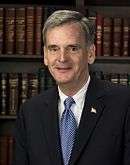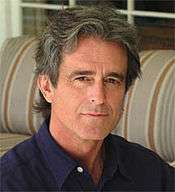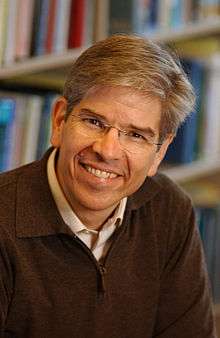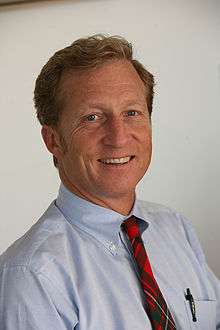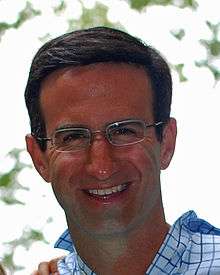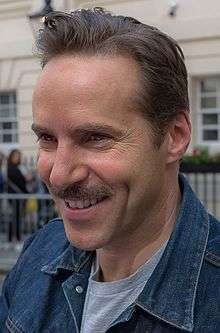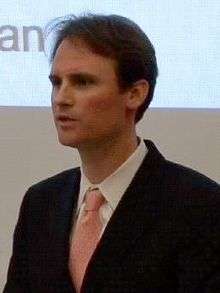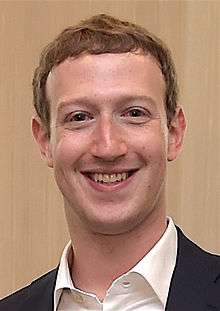List of Phillips Exeter Academy alumni
The following is a list of notable alumni from Phillips Exeter Academy.
This is a dynamic list and may never be able to satisfy particular standards for completeness. You can help by expanding it with reliably sourced entries.
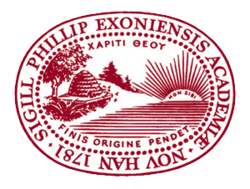
Notable faculty members and trustees of Phillips Exeter Academy
- John Phillips – founder of Phillips Exeter; President of Board of Trustees 1781-1795[1]
- John Pickering - Federal Judge, impeached for drunkenness; trustee 1781-1782
- Benjamin Abbot – Principal 1788-1838[1]
- Daniel Dana - President of Dartmouth College; instructor 1789–91; Board of Trustees 1809-1843
- John Taylor Gilman – Delegate to the Continental Congress; Governor of New Hampshire; President of Board of Trustees 1795-1827[2]
- Ashur Ware - Federal Judge; instructor 1804-1805
- Nathan Hale - editor and publisher; introduced regular editorial commentary; instructor 1805-1807
- Alexander Hill Everett – diplomat and politician (1807)[3]
- Nathan Lord - President of Dartmouth College in Hanover, New Hampshire; faculty member 1809-1812
- Henry Ware, Jr. - mentor to Ralph Waldo Emerson; instructor, 1812-1814
- James Walker - President of Harvard University; faculty 1814-1815
- Ebenezer Adams – first professor of mathematics and natural philosophy[4]
- Nathaniel Appleton Haven – U.S. Representative from New Hampshire; President of Board of Trustees 1828-1830[5]
- Jeremiah Smith – U.S. Representative from New Hampshire, Judge; Governor of New Hampshire; President of Board of Trustees 1830-1842[5]
- Francis Bowen – Philosopher, writer, and educationalist; faculty 1833-1835[5]
- Joseph Gibson Hoyt – Chancellor of Washington University in St. Louis; faculty 1840-1858[6]
- Andrew Preston Peabody — Unitarian clergyman and author; Board of Trustees, 1843-1885
- Amos Tuck - U.S. Representative from New Hampshire; founder of the Republican Party; Board of Trustees 1853-1879
- Charles H. Bell – Governor of New Hampshire; trustee 1879-1883[7]
- George Lyman Kittredge – faculty 1883-1887[8]
- T.A. Dwight Jones – faculty
- H. Hamilton "Hammy" Bissell – Director of Scholarships[9]
- Donald B. Cole – historian; faculty 1947-1988[10]
- Winthrop Jordan – historian; faculty member in History Department 1955-1960[11]
- Frederick Buechner – writer; theologian; Religion and English faculty and School Minister 1958-1967
- Richard G. Brown – faculty 1962-1997[12]
- Cabot Lyford - sculptor; faculty 1963-1986
- Michael S. Greco – President of American Bar Association; faculty 1965-1968[13]
- David P. Robbins – mathematician; faculty[14]
- Stephen G. Kurtz – historian; faculty (1974-1987)[15]
- Jeffrey Harrison – faculty[16]
- Thomas Hassan – faculty 1989–present; Principal 2009–present[17]
- Dan Brown – New York Times bestselling author; faculty 1993[18]
- Tyler Tingley – Principal 1997-2009[19]
- Todd Hearon – faculty 2003–present[20]
- Michael Golay – historian; faculty 1999–present[21]
- Gwynneth Coogan – U.S. Olympian; faculty 2002–present[22]
1780s
- Benjamin Ives Gilman (1783) – Ohio pioneer
- George Sullivan (1783) – U.S. Representative from New Hampshire
- Nathaniel Thayer (1783) – Unitarian minister
- Samuel Smith (1784) – U.S. Representative from New Hampshire
- George B. Upham (1785) – United States Representative from New Hampshire[23]
- Josiah Bartlett, Jr. (c. 1786) – United States Representative from New Hampshire[24]
- Daniel Tilton (1786) – one of the first two judges in Mississippi Territory, Supreme Court of Mississippi Territory[25]
- Daniel Meserve Durell (1789) – U.S. Representative from New Hampshire; member of Democratic-Republican Party
1790s
- Dudley Leavitt (1790) – publisher, writer, teacher[26]
- David L. Morril (1790) – U.S. Senator from New Hampshire, Governor of New Hampshire
- Nicholas Emery (c. 1791) – Justice of the Maine Supreme Judicial Court[27]
- Daniel French (Attorney General) (1791) – Attorney General of the State of New Hampshire; grandfather of Daniel Chester French
- John Noyes (1791) – U.S. Representative from Vermont
- Lewis Cass (1792) – Brigadier General; Governor of Michigan Territory, Secretary of War; U.S. Senator from Michigan; U.S. Secretary of State; Democratic candidate for President[28]
- William Ladd (1793) – pacifist, founder and first President of American Peace Society
- Nathaniel Upham (1793) – U.S. Representative from New Hampshire[29]
- Samuel Conner (1794) – U.S. Representative from Massachusetts[30]
- John Adams Harper (c. 1794) – U.S. Representative from New Hampshire[31]
- Edward Little (1794) – attorney, entrepreneur, philanthropist
- Joseph Stevens Buckminster (1795) - Unitarian minister and promulgator of Higher Criticism
- Daniel Webster (1796) – U.S. Representative who represented New Hampshire and Massachusetts; U.S. Senator from Massachusetts; U.S. Secretary of State; diplomat[32]
- Leverett Saltonstall I (1798) – U.S. Representative from Massachusetts[33]
- James Clark (c1798) – President of the New Hampshire State Senate
- Henry Wadsworth (1799) — killed in the explosion of the USS Intrepid during the First Barbary War
1800s
- Samuel Livermore (c. 1800) – legal scholar
- Richard Saltonstall Rogers (1800) – East Indies Merchant, N. L. Rogers & Bros., Salem, Massachusetts[34][35]
- Abiel Chandler (1802) – merchant, philanthropist
- Joseph Cogswell (1802) – educator, editor, library administrator
- William Plumer, Jr. (1802) – U.S. Representative from New Hampshire
- James Carr (1803) – U.S. Representative from Massachusetts
- John Perkins Cushing (1803) – China merchant, opium smuggler, philanthropist
- Augustine Heard (c. 1803) – entrepreneur and businessman
- Nicholas B. Doe (1804) – U.S. Representative from New York State
- Theodore Lyman (1804) – Mayor of Boston, Massachusetts
- Lucius Manlius Sargent (1804) – author, antiquarian, and temperance advocate
- John Lauris Blake (1806) – minister and prolific author
- Benjamin T. Pickman (1806) – President of the Massachusetts State Senate
- Zachariah Allen (1807) – manufacturer and inventor
- Edward Everett (1807) – U.S. Representative from Massachusetts; U.S. Senator from Massachusetts; Governor of Massachusetts, Ambassador to Great Britain; U.S. Secretary of State; President of Harvard University
- Benjamin Kendrick Pierce (1807) – U.S. Army officer; brother of Franklin Pierce; son of Benjamin Pierce
- Joseph Blunt (c. 1808) – author; editor; politician; New York County District Attorney
- James H. Duncan (1808) – U.S. Representative from Massachusetts
- James Freeman Dana (1809) – chemist; science author
- Samuel Luther Dana (1809) – chemist; agricultural science specialist; science author
- William Thorndike (1809) - President of the Massachusetts State Senate
1810s
- Thomas Bulfinch (1810) – author of Bulfinch's Mythology
- John Adams Dix (1810) – Secretary of the Treasury; U.S. Senator from New York; Governor of New York
- William Willis (1810) – Mayor of Portland, Maine; railroad president
- Jonathan P. Cushing (1811) – President of Hampden-Sydney College
- George Bancroft (1811) – historian, Secretary of the Navy; founder of the United States Naval Academy; Ambassador to the United Kingdom
- Horace Hooker (c. 1811) – Congregationalist minister; author
- John G. Palfrey (1811) – clergyman, U.S. Representative from Massachusetts
- Jared Sparks (1811) – President of Harvard University
- Benjamin Ogle Tayloe – businessman
- David Barker, Jr. (1812) – U.S. Representative from New Hampshire
- Samuel Cartland (1812) – President of the New Hampshire State Senate; Acting Governor of New Hampshire[36]
- Alpheus Spring Packard, Sr. (1812) – Professor; Acting President of Bowdoin College
- William Bourne Oliver Peabody (1812) – Unitarian minister, author
- John Sherburne Sleeper (c. 1812) – sailor, ship master, novelist, journalist, politician
- Charles Paine (1813) – Governor of Vermont
- James Wilson II (1813) – U.S. Representative from New Hampshire
- Andrew L. Emerson (c. 1816) – first Mayor of Portland, Maine
- Nathaniel Gookin Upham (1816) – Associate Justice of the New Hampshire Supreme Court; railroad president; diplomat
- Thomas Wilson Dorr (1819) – Governor of Rhode Island; leader of the eponymous Dorr Rebellion
- Alfred L. Elwyn (1819) – humanitarian, author
- Russell Sturgis (1819) – merchant, banker
1820s
- George Lunt (c. 1820) – politician, author, editor, poet
- Franklin Pierce (1820) – U.S. Representative from New Hampshire; U.S. Senator from New Hampshire; 14th President of the United States[37]
- John Sullivan (Attorney General) (1820) – Attorney General of the State of New Hampshire
- Josiah S. Little (1821) – Speaker of the Maine House of Representatives
- John Langdon Sibley (1821) – librarian of Harvard University
- Jonathan Chapman (1822?) – Mayor of Boston, Massachusetts
- Alfred W. Craven (1822) – civil engineer; founding member and President of the American Society of Civil Engineers
- Thomas Tingey Craven (Rear Admiral) (1822) – Rear Admiral, United States Navy
- Alpheus Felch (c. 1822) – U.S. Senator from Michigan; Governor of Michigan[38]
- Samuel Haven (1822) – archeologist, anthropologist
- Richard Hildreth (1823) – historian, political theorist
- John Hodgdon (1823) – President of the Maine State Senate, Mayor of Dubuque, Iowa
- Ephraim Peabody (1823) – Unitarian minister; abolitionist
- George Yeaton Sawyer (1823) – Justice of the New Hampshire Supreme Court
- Forrest Shepherd (1823) – geologist
- George Bradburn (1824) – politician and Unitarian minister in Massachusetts[39]
- John Parker Hale (c. 1824) – U.S. Representative from New Hampshire; U.S. Senator from New Hampshire; abolitionist; Free Soil candidate for U.S. President; Ambassador to Spain[40]
- Francis Ormand Jonathan Smith (c. 1824) – U.S. Representative from Maine[41]
- Samuel Stillman Boyd (1826) – Judge of the Supreme Court of Mississippi
- Edward Henry Durell (1826) – Mayor of New Orleans, Federal Judge
- Silas Holman Hill (1828) – Acting Mayor of Washington, D.C.
- Theodore Howard McCaleb (1828) – Federal Judge; President of the University of Louisiana
- Francis Bowen (1829) – philosopher, writer, educationalist[42]
- Benjamin Butler (1829) – Civil War General (Union); U.S. Representative from Massachusetts; Governor of Massachusetts
- Charles Turner Torrey (1829) – abolitionist; convicted of stealing slaves, died in prison
- Jeffries Wyman (1829) – naturalist and anatomist
- Morrill Wyman (1829) – physician and social reformer
1830s
- Edward Fox (1830) – federal judge
- Henry F. Harrington (1830) — Editor of the Boston Herald
- Henry Gardner (1831) – Governor of Massachusetts
- Horace G. Hutchins (1831) – Mayor of Charlestown, Massachusetts
- Timothy R. Young (c. 1831) – U.S. Representative from Illinois
- Theodore Chase Woodman (1831) — Speaker of the New Hampshire House of Representatives
- Nathaniel Holmes (1833) – Judge of the Supreme Court of Missouri
- Nathaniel B. Baker (1834) – Governor of New Hampshire
- Edmund Burke Whitman (c. 1834) – quartermaster, U.S. Army; Superintendent of National Cemeteries
- William Henry Chandler (1835) – politician from Connecticut
- Fitz John Porter (1835) – Civil War General (Union)
- John F. Potter (1835) – U.S. Representative from Wisconsin
- William B. Small (c. 1835) – U.S. Representative from New Hampshire
- Jonas M. Tebbets (1835) – Arkansas judge and politician; sentenced to death for supporting the Union army, but released[43]
- Ezra Abbot (1836) – New Testament scholar
- Charles H. Bell (1837) – U.S. Senator from New Hampshire, Governor of New Hampshire
- Nathanial Gordon (1838) – President of the New Hampshire State Senate; philanthropist[44]
- George Walker (attorney) (1838) – politician; banker; diplomat; U.S. Consul-General in Paris
- Amos Tappan Akerman (c.1839) – U.S. Attorney General, 1870–1872
- John W. Kingman (1839) – one of the first three judges in Wyoming Territory; proponent of women's suffrage[45]
- E. Carleton Sprague (1839) – lawyer, politician, Chancellor of the University of Buffalo
1840s
- James Camp Tappan (c. 1841) – Civil War general (CSA), Speaker of the Arkansas House of Representatives
- Paul A. Chadbourne (1842) – President of University of Wisconsin, Williams College, and University of Massachusetts
- James Cooley Fletcher (1842) – missionary, diplomat, author
- Charles J. Gilman (c. 1842) – U.S. Representative from Maine
- Jonathan Homer Lane (1842) – astronomer
- Augustus Lord Soule (1842) – Associate Justice of the Massachusetts Supreme Judicial Court
- Rodney M. Stimson (c. 1843) – Ohio politician; State Librarian of Ohio; newspaper publisher and editor
- Elijah B. Stoddard (1843) – Mayor of Worcester, Massachusetts
- Bernard Crosby Whitman (c. 1843) – Chief Justice of the Supreme Court of Nevada
- Henry W. Cleaveland (c. 1844) – architect
- E. C. Banfield (1845) – U.S. Representative from Massachusetts; Solicitor of the United States Treasury
- Charles Cogswell Doe (1845) – Chief Justice of the New Hampshire Supreme Court[46]
- Curtis Coe Bean (1846) – delegate from the Territory of Arizona to the U.S. House of Representatives
- George Francis Richardson (1846) – Massachusetts politician
- William Dorsheimer (1847) – U.S. Representative from New York; Lieutenant Governor of New York[47]
- Charles Franklin Dunbar (1847) — editor; political economist; Dean of Faculty, Harvard University; President of the American Economic Association
- Richard Sylvester (1847) – journalist
- William Robert Ware (1847) – architect, founder of architecture programs at MIT and Columbia University[47]
- William Fessenden Allen (1848) – Privy Councillor to King of Hawaii; Chairman of the Advisory Council of the Provisional Government of Hawaii; member of the Executive Council of the Republic of Hawaii
- Christopher Langdell (1848) – legal scholar, jurist and educator
1850s
- Elias H. Cheney (c1850) – newspaper editor; New Hampshire politician; U.S. Consul in Cuba, Bolivia, and Curaçao[48]
- Frederick Lothrop Ames (1851) - business magnate; art collector
- Franklin Benjamin Sanborn (1851) – author, journalist, abolitionist
- Uriah Smith (1851) – Seventh-day Adventist author and theologian
- George Bates Nichols Tower (c1851) – civil and mechanical engineer; author[49]
- Benjamin Smith Lyman (1852) – mining engineer, surveyor, linguist
- Benjamin F. Prescott (1852) – Governor of New Hampshire
- Jeremiah Smith (1852) – New Hampshire Supreme Court Justice; Harvard Law School professor[50]
- Francis Ormond French (1854) - President of The Manhattan Trust Company
- Wheelock G. Veazey (1855) – Justice of the Vermont Supreme Court; Medal of Honor recipient (Civil War: Gettysburg)
- George E. Adams (1856) – U.S. Representative from Illinois
- Marcellus Bailey (1856) – patent attorney; worked on the patents for the telephone
- Frank W. Hackett (1857) – Assistant Secretary of the United States Navy
- Ira G. Hoitt (1857) — California State Superintendent of Public Instruction
- Edward Rowland Sill (1857) – poet
- George W. Atherton (1858) – President of Pennsylvania State University
- William Ripley Brown (1858) – U.S. Representative from Kansas
- Horace Stuart Cummings (1858) – lawyer; businessman; politician; New Hampshire Secretary of State
- Charles Ezra Greene (1858) – civil engineer; author; first Dean of the University of Michigan College of Engineering
- Edward Tuck (1858) – banker, diplomat, philanthropist
- George S. Morison (1859) – leading bridge designer
- Henry B. Lovering (1859) – U.S. Representative from Massachusetts
1860s
- Jeremiah Curtin (1860) – translator of Native American and Slavic languages; folklorist
- William M.R. French (1860) – first Director of the Art Institute of Chicago
- Robert Todd Lincoln (1860) – son of President Abraham Lincoln; US Secretary of War; U.S. Minister to the United Kingdom
- James Greeley Flanders (1861) — Wisconsin politician
- Marshall Snow (1861) – Acting Chancellor of Washington University in St. Louis
- John White Chadwick (1862) — Unitarian minister and writer
- Augustus Van Wyck (1862) – Supreme Court Justice of Brooklyn, New York
- John E. Leonard (1863) – U.S. Representative from Louisiana[51]
- Elisha B. Maynard (1863) – Mayor of Springfield, Massachusetts; Associate Justice of Massachusetts Superior Court
- John Ames Mitchell (1863) – architect, writer, publisher, co-founder and President of Life magazine
- George Thomas Tilden (1863) – architect
- Wilmon W. Blackmar (1864) – Medal of Honor recipient (Civil War: Battle of Five Forks)
- Charles Rufus Brown (1865) – Hebrew Bible scholar
- Robert Hallowell Richards (1865) — mining engineer; metallurgist
- Joseph Lyman Silsbee (1865) – architect
- William Gardner Hale (1866) – classical scholar
- Walter Clifford (1867) - Mayor of New Bedford, Massachusetts
- John Hubbard (admiral) (1867) – Real Admiral, U.S. Navy
- Herbert H. D. Peirce (1867) – diplomat; Third Assistant Secretary of State; U.S. Ambassador to Norway; brother of C. S. Peirce
- Herbert Baxter Adams (1868) – educator and historian
- Winfield Scott Edgerly (1868) – Brigadier General, U.S. Army
- Charlemagne Tower, Jr. (1868) – U.S. Ambassador to Russia and Germany
- Frank O. Briggs (1869) – U.S. Senator from New Jersey
- Milton A. Shumway (1869) – Justice of the Connecticut Supreme Court
1870s
- August Belmont, Jr. (1870) – banker; owner and breeder of thoroughbreds, builder of Belmont Park racetrack
- Erastus Brainerd (1870) – museum curator; newspaper editor; publicist for Seattle, Washington
- Nathan Haskell Dole (1870) – author and translator
- Ulysses S. (Buck) Grant, Jr. (c. 1870) – entrepreneur; son of President Ulysses S. Grant
- Samuel Leland Powers (1870) – U.S. Representative from Massachusetts
- Sylvester Primer (1870) – linguist and philologist
- Albert D. Bosson (1871) – Mayor of Chelsea, Massachusetts
- Nelson Taylor, Jr. (1871) – politician from Connecticut
- George Herbert Bridgman (1872) – U.S. Minister to Bolivia[52]
- Orrando Perry Dexter (1872) – Adirondack landowner and assassination victim[52]
- Philip Hale (1872) – music critic
- Oscar Richard Hundley (1872) – federal judge
- Frank H. Pope (1872) – newspaper reporter; Massachusetts politician
- Frederick Winthrop Thayer (1872) – invented and patented the catcher's mask for baseball
- George Edward Woodberry (1872) – poet and literary critic
- Melville Bull (1873) – U.S. Representative from Rhode Island
- Henry G. Danforth (1873) – U.S. Representative from New York
- Robert O. Harris (1873) – U.S. Representative from Massachusetts
- James Cameron Mackenzie (1873) – transformative Headmaster of Lawrenceville School
- George Arthur Plimpton (1873) – publisher and philanthropist
- John Ponder Saulsbury (1873) – Delaware Secretary of State[53]
- William Bancroft (1874) – businessman; Brigadier General; Mayor of Cambridge, Massachusetts
- Benjamin Newhall Johnson (1874) - attorney, historian, owner of Breakheart Hill Forest
- Ogden Mills (1874) – financier; owner of thoroughbreds; philanthropist
- Guy Carleton Phinney (1874) – real estate developer
- Frederick Winslow Taylor (1874) – efficiency innovator; management theorist and consultant; president of the American Society of Mechanical Engineers
- James A. Tufts (1874) – President of the New Hampshire State Senate[54]
- William DeWitt Hyde (1875) – President of Bowdoin College
- Henry Shute (1875) – author
- William Morton Grinnell (1876) – lawyer; banker; diplomat; Third Assistant Secretary of State
- Robert Winsor (1876) – financier, investment banker, and philanthropist
- Timothy L. Woodruff (1876) – Lieutenant Governor of New York
- Charles MacVeagh (1877) — U.S. Ambassador to Japan
- William W. Stickney (1877) – Governor of Vermont
- Willard S. Augsbury (1878) – businessman, banker, and politician from New York State
- Sherman Hoar (1878) – U.S. Representative from Massachusetts
- Walter I. McCoy (1878) – U.S. Representative from New Jersey[55]
- William Schaus (1878) – entomologist
- Henry Grier Bryant (1879) – explorer, writer
- S. Percy Hooker (1879) – politician from New York State
- Moses King (1879) – editor and publisher of travel guidebooks
- Francis S. Peabody (1879) – coal baron, ally of Adlai Stevenson
1880s
- Amos Alonzo Stagg (1880) – "grandfather of football"
- Frank Hamlin (1880) — son of Vice President Hannibal Hamlin; lawyer
- Joseph Adna Hill (1881) — statistician; devised the method of equal proportions
- Thomas Parker Sanborn (1881) - poet; inspiration for the protagonist of Santayana's The Last Pilgrim
- Charles Augustus Strong (1881) – philosopher and psychologist
- William Woodward Baldwin (1882) – Third Assistant Secretary of State
- Frank G. Higgins (1882) – football player, lawyer, politician, Lieutenant Governor of Montana
- Edmund Wilson, Sr. (1882) – Attorney General of New Jersey
- Gordon Woodbury (1882) - U.S. Assistant Secretary of the Navy
- Joseph H. Walker (1883) – Speaker of the Massachusetts House of Representatives
- Dwight Wilder Quint (1883) — newspaper editor; author; poet; critic
- Larz Anderson (1884) – businessman, diplomat, U.S. Ambassador to Japan
- Lindley Miller Garrison (1884) – U.S. Secretary of War
- Wallace Nutting (1884) – photographer
- Bradley Palmer (1884) – attorney, businessman, philanthropist, part of American delegation to the Paris Peace Conference
- John Scammon (1884) – President of the New Hampshire State Senate; Associate Justice of the New Hampshire Superior Court
- William A. Chanler (1885) – explorer, soldier, US Representative from New York
- Morton D. Hull (1885) – U.S. Representative from Illinois
- George Hunter (1885) – authority on decorative art
- Walter W. Magee (1885) – U.S. Representative from New York
- Gifford Pinchot (1885) – first Chief Forester of the U.S. Forest Service; Governor of Pennsylvania
- George Rublee (1885) – diplomat, advisor to Woodrow Wilson
- Augustus Noble Hand (1886) — federal judge
- Tim Shinnick (1886) – professional baseball player: second baseman for the Louisville Colonels
- William Wurtenburg (1886) – played on two national championship football teams at Yale; Football Coach at Navy and Dartmouth; physician
- Theodore Davis Boal (1887) – U.S. Army colonel; architect
- Bob Huntington (1887) — U.S. Open Tennis Doubles champion (1891, 1892); architect
- James Madison Morton Jr. (1887) – federal judge
- George Higgins Moses (1887) – U.S. Senator from New Hampshire, Ambassador to Greece
- Curtis Hidden Page (1887) – scholar, author, translator
- William Rhodes (American football) (1887) — All-American football player; won national championship as Football Coach at Yale
- Frank Barbour (1888) – football player; Football Coach at the University of Michigan, businessman
- John Cranston (American football) (1888) - All-American football player; Football Coach at Harvard University
- Robert Boal Fort (1888) — Illinois politician
- Thomas Lamont (1888) – partner and chairman of Board of Directors of J.P. Morgan & Co.
- Lee McClung (1888) – All-American football player; Treasurer of the United States
- Frank St. John Sidway (1888) — New York State politician
- Samuel Washington Weis (1888) – painter
- Robert Lee Word (1888) — Associate Justice of the Montana Supreme Court
- Robert D. Farquhar (1889) – architect
- Ogden H. Hammond (1889) – U.S. Ambassador to Spain
- Booth Tarkington (1889) – Pulitzer Prize winner
1890s
- Butler Ames (1890) – U.S. Representative from Massachusetts
- Carroll Bond (1890) – Chief Judge of the Supreme Court of the U.S. State of Maryland, the Court of Appeals
- George Lawrence Day (1890) – aka John Mapes Adams, Medal of Honor recipient (Boxer Rebellion)
- Marshall Newell (1890) - All-American football player; Football Coach at Cornell University
- Lewis Stevenson (1890) – son of Vice President Adlai Stevenson; Democratic Party leader; Illinois Secretary of State
- William Boyce Thompson (1890) – mining engineer, financier, philanthropist
- Julian Coolidge (1891) – mathematician; President of the Mathematical Association of America
- Louis W. Hill (1891) – railroad magnate
- Henry McKee Minton (1891) – physician, co-founder of Sigma Pi Phi
- Winfred Thaxter Denison (1892) – Secretary of the Interior of the Philippines
- Daniel Gregory Mason (1892) – composer, music critic
- Charles Loring (1893) – Chief Justice of the Minnesota Supreme Court
- William Belmont Parker (1893) - author and editor
- Carl Frelinghuysen Gould (1894) – architect
- Lawrence B. Hamlin (1895) — purveyor of Hamlin's Wizard Oil, fined for false advertising
- George R. Stobbs (1895) – U.S. Representative from Massachusetts
- Charles R. Forbes (1896) – Director of the Veterans' Bureau
- Charles C. Catron (1897) — Justice of the New Mexico Supreme Court
- Walter Dearborn (1897) – experimental psychologist; specialist in reading education
- Burt Z. Kasson (1897) – politician from New York State
- Joseph Jay Bamberger (1898) – film director and producer
- Roscoe Conkling Bruce (1898) – educator
- Robert William Sawyer (1898) – journalist, conservationist
- Samuel Davis Wilson (1898) – Mayor of Philadelphia
- Barry Faulkner (1899) – muralist
- Robert Leavitt (1899) – Olympic gold medalist, 110m hurdles
- Charles M. Olmsted (1899) – aeronautical engineer
1900s
- Antonio Apache (1900) – impostor, cultural impresario (did not graduate)
- Frederick C. Fairbanks (1900) – son of Vice President Charles W. Fairbanks; lawyer; publisher; caused scandal by eloping[56]
- Arthur Nash (1900) - architect
- John F. Dore (1901) – Mayor of Seattle[57]
- James Hogan (American football) (1901) — All-American football player
- Walter Nelles (1901) – a founder of the American Civil Liberties Union[58]
- Foster Rockwell (1901) – All-American football player; Football Coach at Yale and Navy; won national championship coaching at Yale; hotelier
- Ralph B. Strassburger (1901) – businessman, thoroughbred owner and breeder
- Joseph Gilman (1902) – All-American football player, businessman
- J. W. Knibbs (1902) — football player; Football Coach at University of California, Berkeley
- Ferdinand Quentin Morton (1902) — Tammany Hall political boss of Harlem; Chairman of the New York City Civil Service Commission; Commissioner of the Negro National League
- James Cooney (1903) — All-American football player
- Nicholas V. V. Franchot II (1903) – businessman and New York State politician
- Samuel Abraham Marx (1903) – architect and interior designer
- Jay R. Benton (1904) – Massachusetts Attorney General
- Edwin F. Harding (1904) – U.S. Army Major General, Commander of 32nd Infantry Division during WW II
- Howard Jones (1904) - football coach; won national championships coaching Yale and USC
- T. A. Dwight Jones (1904) - All-American football player; Yale football coach
- Harrie B. Chase (1905) – federal judge
- Richard Grozier (1905) – owner, publisher, and editor of The Boston Post; responsible for exposing Charles Ponzi
- Roger Sherman Hoar (1905) – lawyer, politician, science fiction author
- William Rand (1905) – Olympic athlete (1908, 110m hurdles)
- Thomas Coffin (1906) – U.S. Representative from Idaho
- Hubert d'Autremont (1906) - President of the Arizona State Senate
- Haniel Long (1906) – poet, novelist, publisher and academic
- Henry Morgenthau Jr. (1906) – Secretary of the Treasury
- Andrew Tombes (1906) — comedian and character actor
- Ed Wheelan (1907) – cartoonist
- Robert Benchley (1908) – author; member of original staff of The New Yorker; actor
- Frank M. Dixon (1908?) – Governor of Alabama; a founder of the States' Rights Party ("Dixiecrats")
- Arthur Bluethenthal (1909) – All-American football player; decorated World War I pilot
- John Paul Jones — Olympic runner and baseball player (1912); world record holder in the mile run
1910s
- Wayne G. Borah (1910) – federal judge
- Allen Dulles (1910) - U.S. Director of Central Intelligence
- Edwin C. Parsons (1910) – Rear Admiral of the United States Navy
- Olin M. Jeffords (1911) – Chief Justice of the Vermont Supreme Court
- Robert Nathan (1912) – novelist and poet
- Phelps Putnam (1912) – poet
- Donald Ogden Stewart (1912) – Academy Award-winning screenwriter, The Philadelphia Story
- Harold Weston (1912) – modernist painter
- William D. Byron (1913) – U.S. Representative from Maryland
- Harry Worthington (1913) — Olympic long jumper (1912)
- John Amen (1914) – prosecutor of government corruption, head of the U.S. Interrogation Division at the Nuremberg Trials
- Arthur Freed (1914) – film producer
- Howard Hawks (1914) – film director
- Joseph Frank Wehner (1914) – fighter pilot
- Charles Bierer Wrightsman (1914) – fine arts collector and philanthropist
- Eddie Casey (1915) - All-American football player; Head Coach of the Washington Redskins
- Richard Folsom Cleveland (1915) – son of President Grover Cleveland; civil servant
- Lawrence Dennis (1915) – author and economist
- Louis M. Loeb (1915) – President of the New York City Bar Association
- Drew Pearson (1915) – newspaper reporter, author, columnist
- John Cowles, Sr. (1917) – co-owner of the Cowles Media Company
- Frederick Cunningham (1917) — Olympic fencer (1920)
- Werner Janssen (1917) – conductor and composer
- Donald Lourie (1917) – All-American football player; businessman; government official
- Frederick James Woodbridge (1917) – architect
- Robert Chiperfield (1918) – U.S. Representative from Illinois
- George H. Love (1918) – businessman; industrialist; coal baron; Chairman of the Board of Chrysler
- Francis T.P. Plimpton (1918) – lawyer and diplomat
- Norris H. Cotton (1919) – U.S. Representative from New Hampshire; U.S. Senator from New Hampshire
- Haddie Gill (1919) — pitcher for Cincinnati Reds
- David Granger (1919) – 1928 Olympic silver medalist (five-man bobsleigh)
- Donald Oenslager (1919) – Tony Award-winning scenic designer
1920s
- James Tinkham Babb (1920) - librarian and book collector
- Mark Brunswick (c. 1920) - composer
- Corliss Lamont (1920) – humanist and civil libertarian
- Jess Sweetser (1920) – amateur golfer
- Herb Treat (1920) - All-American football player; player-coach of the Boston Bulldogs
- C. Bradford Welles (1920) – classicist
- Francis Grover Cleveland (1921) – son of President Grover Cleveland; actor
- James Greenway (1921) – ornithologist
- Laurence Stoddard (1921) — Olympic coxwain (1924, gold medal)
- Weston Adams (1922c) – principal owner and President of the Boston Bruins
- Montgomery Atwater (1922) - pioneer in avalanche research and forecasting; author
- Robert Todd Lincoln Beckwith (1922) – great-grandson of Abraham Lincoln
- John W. Nason (1922) – President of Swarthmore College; negotiated acceptance of interned Japanese-American students to colleges
- Bayes Norton (1922) — Olympic Sprint runner (1924)
- Laurence Duggan (1923) – head of the South American desk at the United States Department of State; Soviet spy
- Jarvis Hunt (1923) – President of the Massachusetts State Senate
- Elliott Merrick (1923) - bestselling author
- Charles Edward Wyzanski, Jr. (1923) – federal judge
- John Chase (ice hockey) (1924) — Olympic ice hockey player (1932—silver)
- Howard Francis Corcoran (1924) — federal judge
- Sidney Darlington (1924) - engineer and inventor; winner of the Presidential Medal of Freedom
- John F. "Jack" Hasey (1924) - officer in the French Foreign Legion; C.I.A. officer; Officer in the Légion d'honneur
- Tracy Jaeckel (1924) — Olympic fencer (1932- bronze medal, 1936)
- George E. Kimball (1924) – professor of quantum chemistry
- John H. H. Phipps (1924) - businessman, conservationist, philanthropist, champion polo player
- Edmund Berkeley (1925) - computer scientist; author
- John K. Fairbank (1925) – academic and historian of China
- Lincoln Kirstein (1925) – writer; co-founder and General Director of the New York City Ballet (did not graduate)
- Dwight Macdonald (1925) – author and critic
- Kent Smith (c. 1925) – actor
- Walworth Barbour (1926) - U.S. Ambassador to Israel
- Walter A. Brown (1926) – original owner of the Boston Celtics,[59] owner of the Boston Bruins
- Richard W. Leopold (1926) – historian at Northwestern University
- Red Rolfe (1927) – All-Star New York Yankee third baseman, Manager of the Detroit Tigers
- James Agee (1928) – author and critic
- Morton Bartlett (1928) - sculptor and photographer
- Jack R. Howard (1928) – broadcasting executive
- Albert E. Kahn (1928) - blacklisted journalist and photographer
- Tex McCrary (1928) – journalist, radio and television talk-show innovator, political "fixer"
- Hart Day Leavitt (1928) – longtime English teacher, Phillips Academy, Andover, Massachusetts
- Paul Sweezy (1928) – economist and publisher
- Whiting Willauer (1928) – U.S. Ambassador to Honduras and Costa Rica
- Robert H. Bates (1929) – instructor in English, PEA; mountaineer
- H. Hamilton "Hammy" Bissell (1929) – long-time Director of Scholarships at the Academy; uncle of John Irving (1961)
- Edwin Gillette (1929) – cameraman, inventor of animation technique
- William Howard Stein (1929) – Nobel Prize winner in Chemistry, 1972
- Henry Babcock Veatch (1929) - neo-Aristotelian philosopher
- Richard Walker Bolling – U.S. Representative from Missouri (did not graduate)
1930s
- Joseph Burchenal (1930) – oncologist; winner of the Lasker Award
- Pierre S. du Pont (1930) – President of DuPont, manager of General Motors
- John A. M. Hinsman (1930) – President of the Vermont State Senate
- Francis Spain (1930) – Captain of the 1936 U. S. Olympic hockey team (bronze medal)
- Eliot Butler Willauer (1930) – architect
- Larry Bogart (1931) – critic of nuclear power
- Macdonald Carey (1931) – film and television actor, winner of two Emmy Awards
- John Crosby (1931) – newspaper columnist, media critic, suspense novelist
- Richard S. Salant (1931) – President of CBS News
- Sonny Tufts (1931) – film and television actor
- Bruce H. Billings (1932) – physicist
- Richard Pike Bissell (1932) – author and playwright, winner of Tony Award (The Pajama Game)
- Milton Green (1932) — world record holder in the high hurdles; boycotted 1936 olympics
- John Toland (1932) – Pulitzer Prize-winning historian (The Rising Sun)
- Adolph Coors III (1933) – businessman
- Richard Dorson (1933) – "father of American folklore"
- Richard French (1933) – musicologist; Yale professor
- Arthur Schlesinger Jr. (1933) – historian
- Charles E. Tuttle (1933) – publisher
- Nathaniel Benchley (1934) – author, screenwriter
- William H. Blanchard (1934) – four-star general, Vice Chief of Staff of the United States Air Force
- Gordon Kay (1934) – movie producer
- Robert W. Anderson (1935) – playwright
- Elkan Blout (1935) - inventor; biochemist; awarded National Medal of Science
- R.W.B. Lewis (1935) — literary scholar and critic
- Tom Slick (c. 1935) – inventor and businessman
- Joseph Coors (1935) – CEO, Coors Brewing Company
- David D. Furman (1935) – New Jersey Attorney General, New Jersey Superior Court judge
- Hugh Gregg (1935) – Governor of New Hampshire, father of Senator Judd Gregg (1965)
- David Hall (c. 1935) – recorded sound archivist
- William Verity, Jr. (c. 1935) – Secretary of Commerce
- James T. Aubrey, Jr. (c. 1936) – President of CBS and MGM
- Thornton Bradshaw (1936) - Chairman and CEO of RCA
- Alfred D. Chandler, Jr. (1936) – business historian
- Thomas Clinton (1936) – executive of Deutsche Bank, philanthropist, early advocate of the formation of the Presbyterian Church
- Calvin Plimpton (1936) – physician, President of Amherst College
- George M. Prince (c. 1936) — co-creator of synectics
- Robert Samuel Salzer (1936) – Vice Admiral of the United States Navy
- Lee Parsons Gagliardi (1937) – federal judge
- Douglas Knight (1937) – President of Duke University
- Alfred A. Knopf, Jr. (1937) – co-founder of Atheneum Publishers
- Nelson Gidding (1937) – screenwriter
- Robert H. B. Baldwin (1938) - Undersecretary of the Navy; Chairman and President of Morgan Stanley
- Lex Barker (1938) – actor
- T. Clark Hull (1938) – Lieutenant Governor of Connecticut; Connecticut Supreme Court Justice
- Nicholas Katzenbach (1938) – U.S. Attorney General; Vice-President of IBM; father of John Katzenbach (1968)
- Alexander Saxton (c. 1938) – historian, novelist, and university professor
- Arthur A. Seeligson, Jr. (1938) – oilman, rancher, thoroughbred racehorse owner and breeder
- Sloan Wilson (1938) – author (did not graduate)
- Forman S. Acton (1939) - computer scientist
- Alfred Atherton (1939) – U.S. Ambassador to Egypt
- Ward Chamberlin (1939) – public broadcasting executive
- John Holt (1939) – educational critic, activist, and author
- Bud Palmer (c. 1939) – professional basketball player
- James Sloane (1939) — Olympic hockey player (1948)
1940s
- Lloyd L. Duxbury (1940c) – Speaker of the Minnesota House of Representatives
- Burke Marshall (1940) – U.S. Assistant Attorney General; head of the Civil Rights Division of the United States Department of Justice during the Civil Rights Era
- Lloyd Shapley (1940) – winner of the 2012 Nobel Prize in Economics
- Harold R. Tyler, Jr. (1940) – federal judge
- William C. Campbell (golfer) (1941) — two-time President of the USGA; member of the World Golf Hall of Fame
- Neil MacNeil (1941) – journalist
- Anton Myrer (1941) – author of war novels
- Robert B. Choate, Jr. (1942) – businessman and political activist
- Nathaniel Davis (1942) – career diplomat, U.S. Ambassador to Guatemala, Chile, and Switzerland
- William Bell Dinsmoor, Jr. (1942) – classical archaeologist and architectural historian
- Thomas Ashley Graves, Jr. (1942) – President of the College of William & Mary
- Lloyd Stephen Riford, Jr. (1942) – New York State politician
- John G. King (1943) - physicist
- Roberts Bishop Owen (1943) — U.S. State Department legal advisor and diplomat
- Robert B. Rheault (1943) – U.S. military officer; conspirator in the Green Beret Affair; inspiration for Apocalypse Now
- Frederic M. Richards (1943) - biochemist and biophysicist
- Julian Roosevelt (1943) – Olympic sailor (1948, 1952-gold medal, 1956, 1960, 1968, 1972)
- Roger Sonnabend (1943) – hotelier and businessman
- John Thomson (1943) – UK High Commissioner to India; UK Ambassador to the UN
- Gore Vidal (1943) – author
- Whitney Balliett (1944) – writer for The New Yorker
- Willis Barnstone (1944) — poet, memoirist, translator
- Robinson O. Everett (1944) – judge and law professor
- Edward Lamont (1944) – politician, grandson of Thomas W. Lamont (1888)
- George Plimpton (1944) – author, editor, journalist, actor (expelled)
- Henry N. Cobb (1944) – architect and founding partner of Pei Cobb Freed & Partners
- J. Glenn Beall, Jr. (1945) – U.S. Representative from Maryland; U.S. Senator from Maryland
- James P. Gordon (1945) – Invented the Maser as a graduate student at Columbia University with Charles H. Townes (who was later awarded Nobel Physics prize in 1964)[60]
- Fred Kingsbury (1945) — Olympic rower (1948-bronze medal)
- John Knowles (1945) – author, A Separate Peace
- James R. Lilley (1945) – U.S. Ambassador to China
- William E. Schluter – New Jersey politician
- Charles W. Bailey II (1946) – political reporter, newspaper editor, political novelist (Seven Days in May)
- Theodore V. Buttrey, Jr. (1946) - numismatist
- Michael Forrestal (1946) – government aide, legal advisor
- Will Holt (1946?) – singer, songwriter, librettist, lyricist
- Ramsay MacMullen (1946) – professor of history at Yale University
- Wallace Nutting (1946) – four-star general
- F. D. Reeve (1946) – author, poet, translator, editor
- Cervin Robinson (1946) - architectural photographer
- John Cowles, Jr. (1947) – newspaper editor and publisher; philanthropist
- Bill Felstiner (1947) — socio-legal scholar
- Donald Hall (1947) – poet; US Poet Laureate, 2006–2007
- Richard W. Murphy (1947) – diplomat; U.S. Ambassador to Mauritania, Syria, the Philippines, and Saudi Arabia
- Glenn D. Paige (1947) - political scientist
- John Pittenger (c. 1947) – lawyer and academic
- Haviland Smith (1947) - C.I.A. Station Chief
- Herbert P. Wilkins (1947) – Chief Justice of the Massachusetts Supreme Judicial Court
- David Bevington (1948) – literary scholar
- Douglas M. Head (1948) – Attorney General of Minnesota
- Frederic B. Ingram (1948) — businessman
- Alan Trustman (1948) – screenwriter ("The Thomas Crown Affair," "Bullitt," "They Call Me Mr. Tibbs")
- Don Whiston (1948) — Olympic ice hockey player (1952—silver)
- Carlos Romero Barceló (1949) – Governor of Puerto Rico, Resident Commissioner of Puerto Rico to the U.S. House of Representatives
- Adair Dyer (1949) – attorney, passed the International Family Law through the Supreme Court
- Bo Goldman (1949) – screenwriter (One Flew Over the Cuckoo's Nest, Scent of a Woman), winner of two Academy Awards
- Albert L. Hopkins (1949) — computer designer
- Thomas P. Hoving (1949) – museum director, author, publisher (expelled; graduated from Hotchkiss School)
- John Kerr (1949) – actor
- James Smith (sport shooter) (1949) — Olympic sport shooter (1956)
1950s
- Bill Briggs (skier) (1950) — "Father of Extreme Skiing;" member U.S. National Ski and Snowboard Hall of Fame
- Tom Corcoran (skier) (1950) — Olympic alpine skier (1956, 1960); four time U.S. national champion alpine skier
- M. Scott Peck (c. 1951) – psychiatrist; author (did not graduate)
- George Eman Vaillant (1951) - psychiatrist
- Walter Darby Bannard (1952) – abstract painter
- Robert Cowley (1952) – military historian
- Pierre S. du Pont, IV (1952) – U.S. Representative from Delaware, Governor of Delaware
- Thomas Ehrlich (1952) – President of Indiana University
- Cyrus Hamlin (professor) (1952) - literary critic and theorist
- Harmon Elwood Kirby (1952) – career diplomat; Ambassador to Togo
- Karl Ludvigsen (1952) – automotive journalist, author, historian, and design consultant
- David Mumford (1952) – mathematician; winner of the Fields Medal; MacArthur Fellow
- Datus Proper (1952) - U.S. Foreign Service Officer; author of works on fishing and hunting
- Robert D. Richardson (1952) – historian and biographer
- Harold Russell Scott, Jr. (1952) – Broadway actor and director
- David Wight (1952) - Olympic gold medalist (1956, crew)
- Robert G. Wilmers (1952) – businessman
- Richard S. Arnold (1953) – former judge of the United States Court of Appeals for the Eighth Circuit; namesake of federal courthouse in Little Rock
- Hodding Carter III (1953) – Assistant Secretary of State for Public Affairs
- Michael von Clemm (1953) – businessman, restaurateur, anthropologist
- Bud Konheim (1953) — businessman
- Earl J. Silbert (1953) – prosecutor in Watergate case
- Robert C. Wetenhall (1953) – owner of the Montreal Allouettes Football Club
- Jonathan Aldrich (1954) — poet
- William Becklean (1954) - Olympic Gold medalist (1956, crew)
- Peter B. Bensinger (1954) – administrator of the Drug Enforcement Agency
- James F. Hoge, Jr. (1954) – editor of Foreign Affairs
- Christopher Jencks (1954) – sociologist
- David Merwin (1954) - Olympic sprint canoer (1956)
- Robert Morey (1954) - Olympic gold medalist (1956, crew)
- G. Bradford Cook (1955) – Chairman of the U.S. Securities and Exchange Commission
- Charles D. Ellis (1955) — investment consultant; author; founder of Greenwich Associates
- John Gager (1955) – Professor of Religion at Princeton University
- Richard Maltby, Jr. (1955) – theater producer, director, and lyricist; screenwriter; crossword puzzle creator
- Joseph Nadeau (1955) - New Hampshire Supreme Court Justice
- John D. "Jay" Rockefeller IV (1955) – Governor of West Virginia; U.S. Senator from West Virginia
- Peter Sears (1955) – Poet Laureate of Oregon
- Gordon Park Baker (1956) – American-English philosopher
- William Bayer (1956) – crime fiction writer
- Stewart Brand (1956) – editor, author, Internet pioneer
- H. John Heinz III (1956) – U.S. Representative from Pennsylvania; U.S. Senator from Pennsylvania
- J. Vinton Lawrence (1956) - C.I.A. Operative; caricaturist
- Theodore Stebbins (1956) – art historian
- John Negroponte (1956) – U.S. Ambassador to Honduras, Mexico, The Philippines, and Iraq; the first Director of National Intelligence
- Peter Benchley (1957) – journalist, presidential speechwriter, author, screenwriter (Jaws)
- Wilson L. Condon (1957) – Attorney General of the State of Alaska
- Bill Keith (1957) – banjo innovator
- Herbert Kohler, Jr. (1957) – businessman (did not graduate)
- Jack McCarthy (writer) (1957) - writer and slam poet
- Tim Wirth (1957) – U.S. Representative from Colorado; U.S. Senator from Colorado; current head of the United Nations Foundation
- John Winslow Bissell (1958) – judge for the United States District Court for the District of New Jersey
- Don Briscoe (1958) – television actor
- George Gilder (1958) – writer and co-founder of the Discovery Institute
- Warren Hoge (1958) – reporter, bureau chief, and editor at The New York Times (did not graduate)
- David Lamb (1958) – reporter, bureau chief at The Los Angeles Times (did not graduate)
- Robert Thurman (1958) – first American to be ordained a Buddhist monk in 1964; leading expert on Tibetan Buddhism
- John M. Walker, Jr. (1958) – Chief Judge of the U.S. Court of Appeals for the Second Circuit
- David Rockefeller, Jr. (1959) – Philanthropist and businessman, descendant of John D. Rockefeller
- Morris S. Arnold (1959) – judge on the United States Court of Appeals for the Eighth Circuit
- Daniel Dennett (1959) – philosopher
- Charles Janeway (1959) - immunologist
- Tom Mankiewicz (1959) – screenwriter, director, producer
- Hayford Peirce (1959) – writer
- Benno C. Schmidt, Jr. (1959) – educator, President of Yale University
1960s
- Robert Mehrabian (c. 1960) – materials scientist
- Charles Horman (1960) – journalist, victim of Chilean coup
- Charles C. Krulak (1960) – 31st Commandant of the U.S. Marine Corps
- Jerrold Speers (1960) – Maine State Treasurer
- John Irving (1961) – author; has written more books and short stories set at Exeter than any other alum author
- George W. S. Trow (1961) – novelist, playwright, short story writer, longtime contributor to The New Yorker
- Peter Simon (c. 1961) – actor
- Robert F. Wagner, Jr. (1961) – Deputy Mayor of the City of New York, President of the New York City Board of Education
- Arthur K. Wheelock, Jr (1961) — Curator of the Northern European Art Collection at the National Gallery of Art
- Kenneth Bacon (1962) – Department of Defense spokesman; president of Refugees International[61][62]
- Evan A. Davis (1962) – President of the New York City Bar Association
- Chester E. Finn, Jr. (1962) – educator; President of Thomas B. Fordham Foundation
- Larry Hough (1962) — Olympic rower (1968-silver medal, 1972)
- Myron Magnet (1962) – conservative author, Editor at Large of City Journal
- Henry Burkhardt III (1963) – co-founder of Data General, Encore Computer, and Kendall Square Research
- Gregory Craig (1963) – attorney; assistant Secretary of State; defended President Clinton in impeachment trial; represented father of Elián González in child custody/refugee case; foreign policy adviser to Senator Barack Obama; White House Counsel to President Obama; now at Skadden Arps Slate Meagher & Flom and coordinating defense of Goldman Sachs before the SEC
- Gordon Gahan (1963) – photographer
- Craig Roberts Stapleton (1963) – U.S. Ambassador to France and Czech Republic
- Willy Eisenhart (1964) – writer on art
- Peter Coors (1965) – President, Adolph Coors Brewing Co.
- David Darst (1965) – managing director, Morgan Stanley
- Barry Golson (c. 1965) – editor, journalist, author
- Terry Goddard (1965) – Attorney General of Arizona; Mayor of Phoenix
- Judd Gregg (1965) – U.S. Representative from New Hampshire; Governor of New Hampshire; U.S. Senator from New Hampshire, (withdrew as U.S. Commerce Secretary-designate)
- Helmut Panke (1965) – President, Bayerische Motoren Werke AG (BMW)
- Harrison "Skip" Pope Jr. (1965) – psychiatrist
- Charlie Smith (1965) – poet, novelist
- James Earl Coleman, Jr. (1966) – attorney
- Kent Conrad (1966) – U. S. Senator from North Dakota
- David Eisenhower (1966) – grandson of Dwight D. Eisenhower, 34th president of the United States; namesake of the Camp David presidential retreat
- Fred Grandy (1966) – actor; U.S. Representative from Iowa; political commentator
- Steven T. Kuykendall (1966) – U.S. Representative from California
- David Olney (1966) — folk singer/songwriter
- Mark Ethridge (1967) – Pulitzer Prize-winning journalist; novelist; screenwriter; publisher
- Jonathan Galassi (1967) – President and Publisher of Farrar, Straus and Giroux; poet
- Curt Hahn (1967) – filmmaker
- Lawrence Lasker (1967) – producer and screenwriter of Sneakers
- Frank Teruggi (1967) – journalist
- Tom Birmingham (1968) – President of the Massachusetts Senate
- Edward Hallowell (1968) – psychiatrist
- John Katzenbach (1968) – author; son of Nicholas Katzenbach (1938)
- Michael Fossel (1968) – editor of the Journal of Anti-Ageing Medicine
- Anthony Davis (composer) (1969) — composer and jazz pianist
- John R. Ettinger (1969) – lawyer and philanthropist
- Peter W. Galbraith (1969) – diplomat, author, Ambassador to Croatia (did not graduate)
- John C. Harvey, Jr. (1969) – Vice Admiral; Chief of Naval Personnel Deputy Chief of Naval Operations
- Christopher Kimball (1969) – founder of Cook's Illustrated; host of America's Test Kitchen
- Jack Gilpin (1969) – movie and television actor
- Alex Martinez (judge) (1969) - Colorado Supreme Court Justice
- John McTiernan (1969) – filmmaker
1970s
- Robert Bauer (1970) – attorney, White House Counsel
- Nicholas Callaway (1970) – publisher, television producer, writer, and photographer
- Scott McConnell (1970) journalist
- Alex Beam (1971) – journalist, social critic
- Joyce Maynard (1971) – author
- Benmont Tench (1971) – musician and producer, keyboardist for Tom Petty
- Roland Merullo (1971) – author
- Eben Alexander (1972) – neurosurgeon and author
- Robert J. Fisher (1972) – former Chairman of the Board, Gap, Inc.
- Ned Lamont (1972) – businessman; cable television executive; MBA, Yale School of Management; Democratic nominee for Senator from Connecticut in 2006, defeated by Joseph Lieberman
- Mike Lynch (1972) – television sports broadcaster
- W. Drake McFeely (1972) - Chairman and President of W.W. Norton & Company
- Bobby Shriver (1972) – activist, attorney, journalist
- Eric Breindel (1973) – neoconservative writer, editorial page editor of the New York Post
- Rusty Magee (1973) – comedian, actor and composer/lyricist
- Paul Romer (1973) – Chief Economist of the World Bank
- Clayton Spencer (1973) – president of Bates College
- Paul Sullivan (1973) – pianist and composer
- Emery Brown – neuroscientist and anesthesiologist
- Andrew Holtz (1974) – journalist
- William S. Fisher (1975) – businessman and investor
- Alix M. Freedman (1975) – Pulitzer Prize-winning journalist
- Joseph Lykken (1975) – physicist
- John O. McGinnis (1975) – legal theorist
- Brooks D. Simpson (1975) – author, historian
- Tom Steyer (1975) – asset manager, philanthropist, environmentalist
- Ronald Chen (1976) - dean of Rutger's law school and advocate general for the State of New Jersey
- Charlie Hunter (1976) – artist
- Anne Marden (1976) - Olympic rower (1984-silver medal, 1988-silver medal)
- Ginna Sulcer Marston (1976) – advertising director for the Partnership for a Drug Free America[63][64]
- Norb Vonnegut (1976) – author
- James F. Conant (1977) – philosopher
- James Rubin (1977) – former US Assistant Secretary of State for Public Affairs (Aug. 1997 — Apr. 2000)
- James Somerville (1977) – minister, First Baptist Church (Richmond, Virginia); former minister of First Baptist Church of Washington, DC
- Suzy Welch (1977) – journalist; author; former editor of Harvard Business Review; married to former GE CEO Jack Welch
- Catherine Disher (1978) – actress
- Mark Driscoll (1978) – Emmy Award-winning screenwriter[65]
- Michael Lynton (1978) – CEO of Sony Entertainment Inc.
- Paul Villinski (1978) — sculptor (did not graduate)
- Michael Cerveris (1979) – Broadway and movie actor; winner of two Tony Awards
- John J. Fisher (1979) – majority owner of the Oakland Athletics
- Jonathan Smith (rower) (1979) — Olympic rower (1984-silver medal, 1984-bronze medal, 1992)
- Andrew Sudduth (1979) – Olympic rower (1984-silver medal, 1988)
- Hansen Clarke – U.S. Representative from Michigan (did not graduate)
1980s
- Greg Daniels (1981) – producer, including The Simpsons; adapted U.S. version of The Office from the BBC version; winner of four Emmy Awards
- Dave Douglas (1981) – jazz trumpeter and composer
- Pamela Erens (1981) – novelist
- Paul Klebnikov (1981) – journalist; murdered in Moscow
- Sarah Lyall (1981) – reporter, The New York Times
- Dan Brown (1982) – former instructor in English at Phillips Exeter Academy; bestselling author, The Da Vinci Code
- Kim McLarin (1982) — novelist
- Stephen Metcalf (1982) – critic-at-large and columnist at Slate magazine (did not graduate)
- Cosy Sheridan (1982) – folk singer and songwriter
- Gwynneth Coogan (1983) – Olympic athlete (10,000m, 1992)
- Adam Guettel (1983) – musical theater composer; composed The Light in the Piazza; winner of six Tony Awards
- Chang-Rae Lee (1983) – author
- Henry Blodget (1984) — Editor and CEO of Business Insider
- Julie Livingston (1984) – public health historian, anthropologist, MacArthur Fellow
- Shinichi Mochizuki (1985) – mathematician
- Edmund Perry (1985) – inspiration to Michael Jackson
- Maya Forbes (1986) — screenwriter and television producer
- David Folkenflik (1987) – National Public Radio reporter
- Kenji Yoshino (1987) – law school professor, author
- Peter Orszag (1987) – Director of U.S. Office of Management & Budget under President Barack Obama[66]
- China Forbes (1988) – musician (lead singer of Pink Martini)
- Niel Brandt (1988) – professor of astronomy and astrophysics at Pennsylvania State University
- David Goel (1989) – hedge fund manager[67]
1990s
- Jon Bonné (1990) – journalist
- Michael Crowley (1990) – journalist
- Adrian Dearnell (1990) – Franco-American financial journalist; CEO and founder of EuroBusiness Media[68]
- Jeff Ma (1990) – part of MIT blackjack team, basis of the film 21 and the book Bringing Down the House by Ben Mezrich
- Alessandro Nivola (1990) – actor
- John Palfrey (1990) – educator, scholar, law professor, head of Phillips Academy of Andover
- Brian Shactman (1990) – television news anchor
- Jeff Wilner (1990) - tight end for the Green Bay Packers
- Jonathan Orszag (1991) – economist
- Trish Regan (1991) – television news anchor
- Roxane Gay (1992) – author
- Jedediah Purdy (1992) – author, law school professor
- Rajanya Shah (1992) — Olympic Coxwain (2000)
- John Forté (1993) – musician, recording artist, composer, music producer, educator, activist
- Tarek Masoud (1993) – scholar, political science professor
- Debby Herbenick (1994) – human sexuality expert
- Philip Andelman (1995) - music video director
- Sloan DuRoss (1995) – Olympic rower 2004, Men's Quadruple Sculls[69]
- Ketch Secor (1996) – musician and vocalist, Old Crow Medicine Show
- Hrishikesh Hirway (1996) – musician and vocalist, The One AM Radio
- Luke Bronin (1997) – Mayor of Hartford
- Win Butler (1998) – musician; lead singer of Arcade Fire
- Joy Fahrenkrog (1998) - member of the United States Archery Team
- Georgia Gould (1998) — Olympic mountain biker (2008, 2012-bronze medal)
- Sabrina Kolker (1898) - Canadian Olympic rower (2004, 2008)
- Mike Morrison (1998) – professional ice hockey player
- Soce, the elemental wizard (c. 1998) – rapper and producer
- Paul Yoon (1998) - novelist
- Mike Blomquist (1999) – U.S. National Team (rowing); 2005 Men's 8+l gold medal at 2005 World Championships[70]
2000s
- Sam Fuld (2000) – Major League outfielder for the Chicago Cubs, Tampa Bay Rays, Minnesota Twins, and Oakland Athletics
- William Butler (2001) – musician; multi-instrumentalist of Arcade Fire
- Tom Cavanagh (2001) – National Hockey League player
- Adam D'Angelo (2002) – founder of Quora, first Chief Technology Officer of Facebook
- Mark Zuckerberg (2002) – founder of Facebook
- Andréanne Morin (2002) – Canadian Olympic rower (2004, 2008, 2012—bronze)
- Shani Boianjiu (2005) – writer
- Nicholas la Cava (2005) – Olympic rower (2012)
- Josh Owens (2007) – professional basketball player
- Erik Per Sullivan (2009) – actor; "Dewey" on Malcolm in the Middle
References
- 1 2 Phillips Exeter Academy (1903). General Catalogue of Officers and Students, 1783-1903. Phillips Exeter Academy. p. iv.
- ↑ Bell, Charles Henry (1883). Phillips Exeter Academy in New Hampshire: A Historical Sketch. W. B. Morrill, printer,. p. 24.
- ↑ Phillips Exeter Academy (1903). General Catalogue of Officers and Students, 1783-1903. Phillips Exeter Academy. p. vii.
- ↑ Bell, Charles Henry (1883). Phillips Exeter Academy in New Hampshire: A Historical Sketch. W. B. Morrill. p. 100.
- 1 2 3 Phillips Exeter Academy (1903). General Catalogue of Officers and Students, 1783-1903. Phillips Exeter Academy. p. iv.
- ↑ Phillips Exeter Academy (1903). General Catalogue of Officers and Students, 1783-1903. Phillips Exeter Academy. p. vi.
- ↑ Bell, Charles Henry (1883). Phillips Exeter Academy in New Hampshire: A Historical Sketch. W. B. Morrill, printer,. p. 100.
- ↑ Phillips Exeter Academy (1903). General Catalogue of Officers and Students, 1783-1903. Phillips Exeter Academy. p. vii.
- ↑ "Doing What He Loved, In a Place He Loved". Phillips Exeter Academy. Retrieved December 14, 2013.
- ↑ "VINDICATING ANDREW JACKSON" (PDF). Phillips Exeter Academy. Retrieved December 14, 2013.
- ↑ "Winthrop D. Jordan". American Historical Association. Retrieved December 14, 2013.
- ↑ "Faculty Collection". Phillips Exeter Academy. Retrieved December 14, 2013.
- ↑ "MICHAEL S. GRECO". ABA Leadership. Retrieved December 14, 2013.
- ↑ "AMS Establishes Robbins Prize" (PDF). Inside the AMS. Retrieved December 14, 2013.
- ↑ "PRINCIPAL EMERITUS STEPHEN G. KURTZ (1926–2008)" (PDF). Phillips Exeter Academy. Retrieved December 14, 2013.
- ↑ Books LLC (2010). Phillips Exeter Academy Faculty: Frederick Buechner, Dan Brown, Michael S. Greco, T. A. Dwight Jones, George Lyman Kittredge, Jeffrey Harrison. General Books LLC.
- ↑ "Biography of Principal Thomas E. Hassan". Phillips Exeter Academy. Retrieved December 14, 2013.
- ↑ "WHEN DAN BROWN CAME TO VISIT Biography of Principal Thomas E. Hassan". Phillips Exeter Academy. Retrieved December 14, 2013.
- ↑ "Exhibit Honoring Principal Tyler C. Tingleyrincipal Thomas E. Hassan". Phillips Exeter Academy. Retrieved December 14, 2013.
- ↑ "Phillips Exeter Academy English Instructor Todd Hearon's Poetry Set to Music Hassan". Phillips Exeter Academy. Retrieved December 14, 2013.
- ↑ "History Instructor Michael Golay Publishes 'AMERICA 1933: The Great Depression, Lorena Hickok, Eleanor Roosevelt, and the Shaping of the New Deal". Phillips Exeter Academy. Retrieved December 14, 2013.
- ↑ "EMI Faculty". Phillips Exeter Academy. Retrieved December 14, 2013.
- ↑ "UPHAM, George Baxter, (1768 - 1848)". Biographical Directory of the United States Congress. Retrieved December 14, 2013.
- ↑ Phillips Exeter Academy (1903). General Catalogue of Officers and Students, 1783-1903. Phillips Exeter Academy. p. 162.
- ↑ Phillips Exeter Academy (1903). General Catalogue of Officers and Students, 1783-1903. Phillips Exeter Academy. p. 2.
- ↑ General Catalogue of Officers and Students, 1783–1903, Phillips Exeter Academy, The News-Letter Press, Exeter, 1903. Books.google.com. September 21, 2007. Retrieved January 21, 2011.
- ↑ Phillips Exeter Academy (1903). General Catalogue of Officers and Students, 1783-1903. Phillips Exeter Academy. p. 3.
- ↑ Phillips Exeter Academy (1903). General Catalogue of Officers and Students, 1783-1903. Phillips Exeter Academy. p. 75.
- ↑ "UPHAM, Nathaniel, (1774 - 1829)". Biographical Directory of the United States Congress. Retrieved December 14, 2013.
- ↑ "HARPER, John Adams, (1779 - 1816)". Biographical Directory of the United States Congress. Retrieved December 14, 2013.
- ↑ "HARPER, John Adams, (1779 - 1816)". Biographical Directory of the United States Congress. Retrieved December 14, 2013.
- ↑ "WEBSTER, Daniel, (1782 - 1852)". Biographical Directory of the United States Congress. Retrieved December 14, 2013.
- ↑ "SALTONSTALL, Leverett, (1783 - 1845)". Biographical Directory of the United States Congress. Retrieved December 14, 2013.
- ↑ Phillips Exeter Academy (1903). General catalogue of officers and students, 1783–1903. [s.n.], 1903. pp. 13–. Retrieved 18 December 2011.
- ↑ Richard Saltonstall Rogers, Eighth Generation, Phillips, Howard, Fay Genealogy
- ↑ Phillips Exeter Academy (1903). General Catalogue of Officers and Students, 1783-1903. Phillips Exeter Academy. p. 20.
- ↑ "Franklin Pierce". Totally History. Retrieved December 14, 2013.
- ↑ "FELCH, Alpheus, (1804 - 1896)". Biographical Directory of the United States Congress. Retrieved December 14, 2013.
- ↑ "George Bradburn". Unitarian Universalist History and Heritage Society. Retrieved December 14, 2013.
- ↑ "HALE, John Parker, (1806 - 1873)". Biographical Directory of the United States Congress. Retrieved December 14, 2013.
- ↑ "SMITH, Francis Ormand Jonathan, (1806 - 1876)". Biographical Directory of the United States Congress. Retrieved December 14, 2013.
- ↑ Phillips Exeter Academy (1903). General Catalogue of Officers and Students, 1783-1903. Phillips Exeter Academy. p. 5.
- ↑ Phillips Exeter Academy (1903). General Catalogue of Officers and Students, 1783-1903. Phillips Exeter Academy. p. 44.
- ↑ Phillips Exeter Academy (1903). General Catalogue of Officers and Students, 1783-1903. Phillips Exeter Academy. p. 42.
- ↑ Phillips Exeter Academy (1903). General Catalogue of Officers and Students, 1783-1903. Phillips Exeter Academy. p. 45.
- ↑ Phillips Exeter Academy (1903). General Catalogue of Officers and Students, 1783-1903. Phillips Exeter Academy. p. 51.
- 1 2 General Catalogue of Officers and Students, 1783–1903, Phillips Exeter Academy, The News-Letter Press, Exeter, 1903. Books.google.com. September 21, 2007. Retrieved November 1, 2014.
- ↑ Phillips Exeter Academy (1903). General Catalogue of Officers and Students, 1783-1903. Phillips Exeter Academy. p. 56.
- ↑ Phillips Exeter Academy (1903). General Catalogue of Officers and Students, 1783-1903. Phillips Exeter Academy. p. 54.
- ↑ Phillips Exeter Academy (1903). General Catalogue of Officers and Students, 1783-1903. Phillips Exeter Academy. p. 56.
- ↑ "LEONARD, John Edwards – Biographical Information". Bioguide.congress.gov. Retrieved January 21, 2011.
- 1 2 Phillips Exeter Academy (1903). General Catalogue of Officers and Students, 1783-1903. Phillips Exeter Academy. p. 90.
- ↑ Phillips Exeter Academy (1903). General Catalogue of Officers and Students, 1783-1903. Phillips Exeter Academy. p. 94.
- ↑ Phillips Exeter Academy (1903). General Catalogue of Officers and Students, 1783-1903. Phillips Exeter Academy. p. 97.
- ↑ Walter Irving McCoy biography, United States Congress. Retrieved August 3, 2007.
- ↑ Phillips Exeter Academy (1903). General Catalogue of Officers and Students, 1783-1903. Phillips Exeter Academy. p. 175.
- ↑ Phillips Exeter Academy (1903). General Catalogue of Officers and Students, 1783-1903. Phillips Exeter Academy. p. 178.
- ↑ Solon DeLeon with Irma C. Hayssen and Grace Poole (eds.), The American Labor Who's Who. New York: Hanford Press, 1925; pg. 170.
- ↑ The Boston Celtics Encyclopedia – Google Books. Books.google.com. Retrieved January 21, 2011.
- ↑ Martin, Douglas (July 27, 2013). "James Gordon, Who Paved Way for Lasers, Dies at 85". The New York Times.
- ↑ Martin, Douglas. "K. H. Bacon, an Advocate For Refugees, Is Dead at 64", The New York Times, August 15, 2009. Retrieved August 16, 2009.
- ↑ Staff. "Ken Bacon '62, Receives John Phillips Award", Philips Exeter Academy press release, October 12, 2007. Retrieved August 17, 2009.
- ↑ "Michael Marston Weds Ms. Sulcer". The New York Times. July 20, 1986. Retrieved 2012-05-07.
- ↑ "Sulcer, 77, Former DDB Needham Exec, Dies". Adweek. January 23, 2004. Retrieved 2012-05-07.
- ↑ Awards for Mark Driscoll. IMDB.com
- ↑ "Obama expected to name Peter Orszag OMB director (11/18/08)". GovExec.com. Retrieved January 21, 2011.
- ↑ "The Exeter Bulletin Special Edition" (PDF). Phillips Exeter Academy. Retrieved 2 May 2013.
- ↑ "EuroBusiness Media".
- ↑ "Alumni/ae Affairs Home Page". Phillips.exeter.edu. Retrieved January 21, 2011.
- ↑ "Phillips Exeter Academy | Three Exonians in Beijing, Competing in Rowing and Cycling". Exeter.edu. Archived from the original on April 20, 2009. Retrieved January 21, 2011.
Further reading
- Harris, Bernard C.; Phillips Exeter Academy Alumni-Alumnae, A Listing of the Trustees, Principals, Members of the Faculty Emeriti, and All Living Alumni and Alumnae ; Harris Publishing Company (White Plaines, New York), 19th Edition, PAH-W121-1M-18.1V
This article is issued from Wikipedia - version of the 11/27/2016. The text is available under the Creative Commons Attribution/Share Alike but additional terms may apply for the media files.
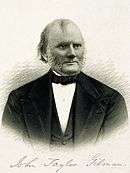
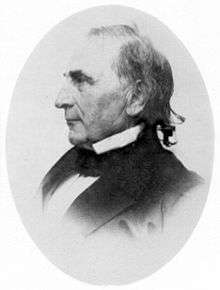
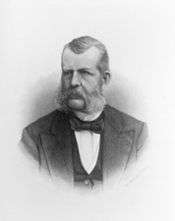
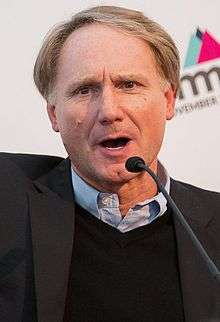
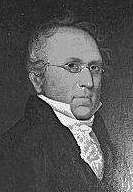
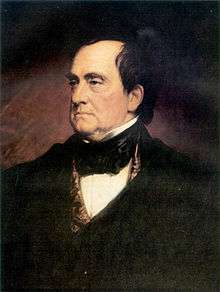
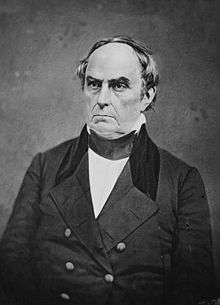
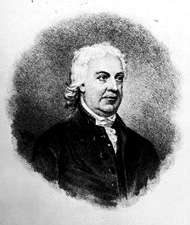
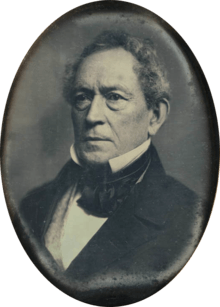

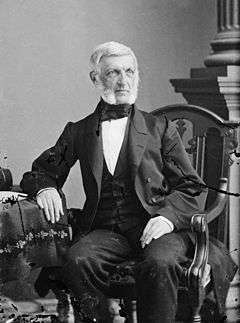
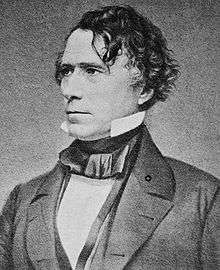
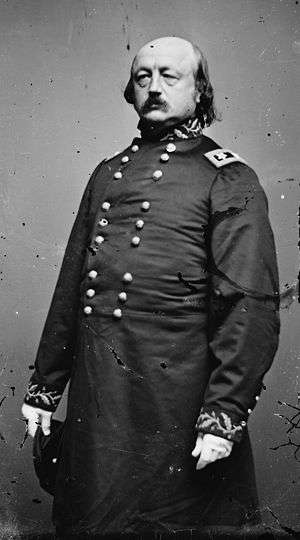
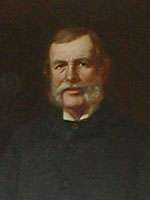
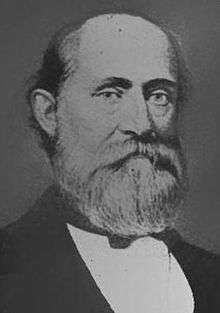

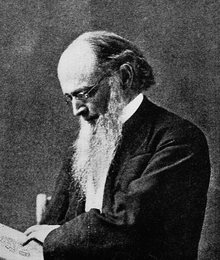

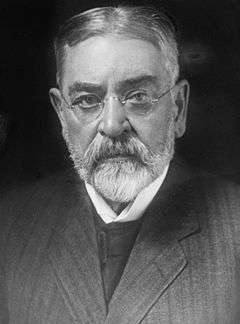
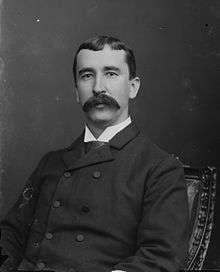

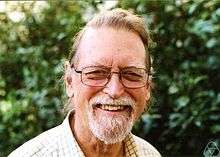
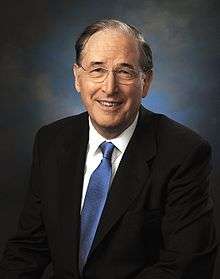

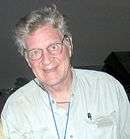
.jpg)


